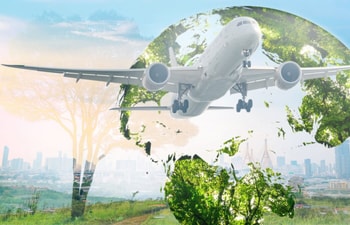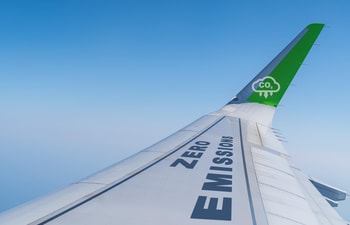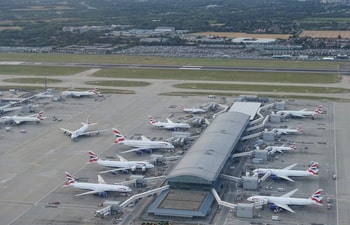The US produced 30 million gallons of sustainable aviation fuel (SAF) domestically in the first three quarters of 2024, up from 5 million gallons in 2021.
Based on a database of active projects, between 2.6-4.9 billion gallons per year of SAF may be produced by 2030, according to a recently published SAF Grand Challenge progress report.
Like many clean fuels, SAF is supported with tax credits through the Inflation Reduction Act, but its attributes were recognised before. In September 2021, the US launched the SAF Grand Challenge to drive the scale-up. The idea was – and remains – for the US to meet the three billion by 2030 target, but policy has been lagging.
Read more: Policy is lagging at SAF takes off
From feedstock innovation and conversion technologies to building supply chains, policy, and valuation analysis, and enabling end use, federal agencies are accelerating innovation on the path to a decarbonised aviation sector, the report states.
DOE funding has helped develop and test a new method, ‘alcohol-to-jet’, for producing SAF using ethanol, with LanzaJet opening the first ethanol-to-SAF facility in Georgia.
Funding continues via the DOE’s Bioenergy Technologies Office ($151m), USDA ($18m), FAA ($5m) in ASTM fuels and Fueling Aviation’s Sustainable Transition programme ($249m).
Scaling SAF remains a domestic and global challenge.
The US transport sector has become the largest source of carbon dioxide (CO2) emissions in the country with aviation generating approximately 11% of transport-based CO2 emissions that contribute to climate change.
United Airlines, along with Airlines for America members, have pledged to work towards the SAF Grand Challenge three billion target.
There are still some policy gaps, such as adding biogenic CO2 as a qualifying feedstock in the federal Renewable Fuel Standard (RFS).
There are currently four renewable fuel categories under the RFS program, which are biomass-based diesel, cellulosic biofuel, advanced biofuel, and total renewable fuel.
The biggest challenge for power-to-liquids fuels is competition for electrical infrastructure and renewable energy supply with data centres, which is driving up costs and pushing project timelines.
Heathrow Airport has pledged £86m to airlines under its sustainable aviation fuel (SAF) scheme in 2025.
Read more: Heathrow accelerates SAF adoption
UK flights are set to be greener this year as the SAF mandate officially came into force from 1st January but it remains to be seen whether airlines and airports can deliver on the new, and rising, targets.
Read more: Is UK SAF mandate achievable?






